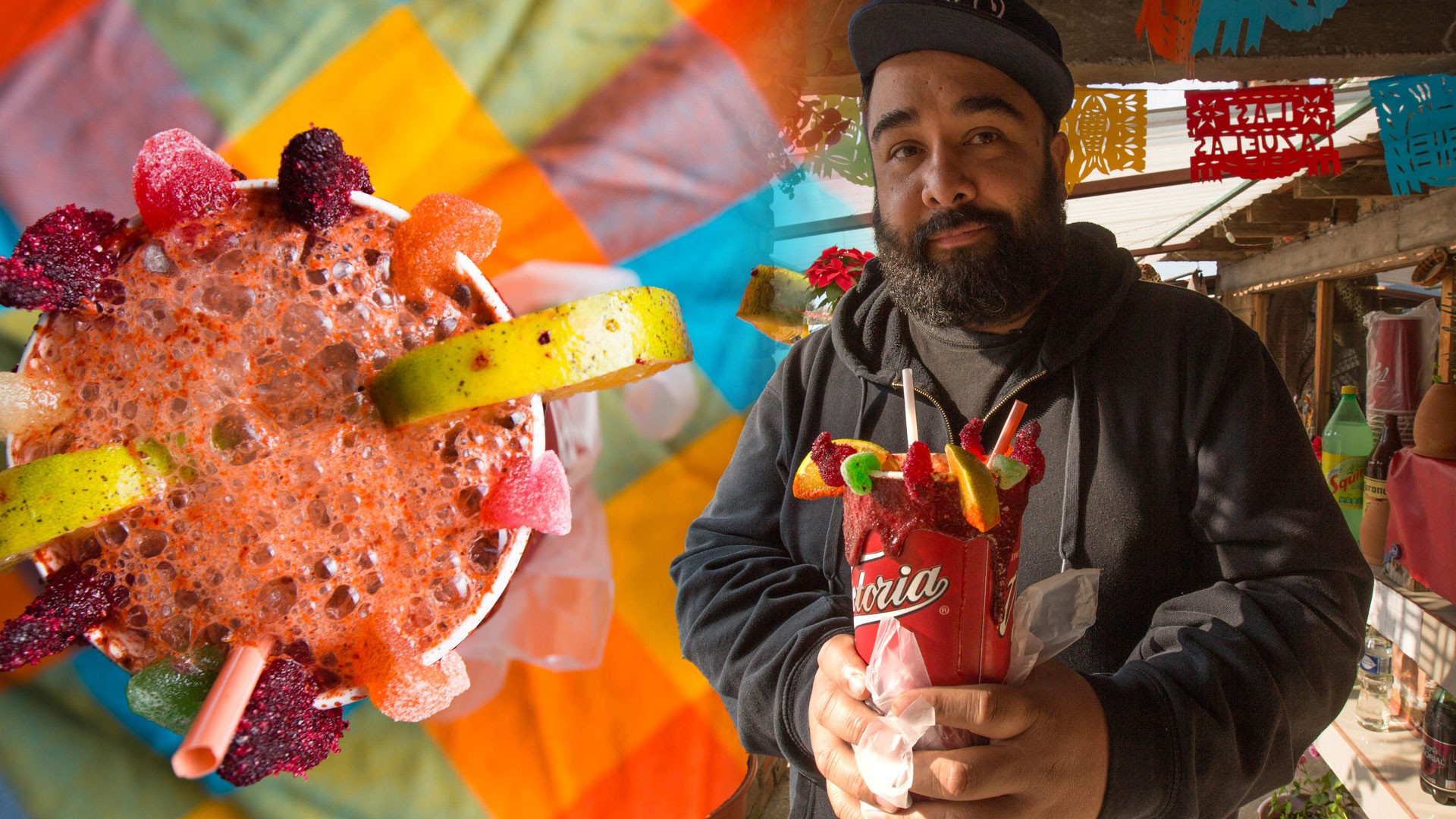This is the fourth installment of In the Belly of America, a new series in which Canadian Ivy Knight explores the United States through profiles of average (and not-so-average) Americans through their connections with food.Erick Castro started out bussing tables at La Fogata, his family’s Mexican restaurant in Hemet, California. Up in the high desert, right between LA and Palm Springs. From his early days, “I was fascinated by the idea of anybody sticking it to the man. People who were rebellious but in a productive manner.”
Advertisement
He’s a Mexican-American whose parents came over to America on the Bracero Program, which helped immigrant workers get green cards—a program that sounds like an old-fashioned fairy tale given the current political climate. Castro grew up in a home filled with the aromas of fresh corn tortillas and traditional Mexican music on the radio. So what does he think about said political climate?He doesn’t want to talk about it. Not one word.I can’t figure out if Castro is just giving me the face that all career bartenders have—the smile that allows them to serve you even when you’re obnoxious or sloppy drunk. He isn't just a career bartender, though. He owns two bars, Polite Provisions in San Diego and Boilermaker in New York, has spent the last year hustling “Bartender at Large,” the documentary he shot with his wife Amelia; has his own podcast of the same name; is shooting another doc; and used to be a booze rep.
A bartender at Polite Provisions.
That last one is the clincher; the prerequisite for nailing a booze rep gig is the face you give. He basically has a master’s degree in hail fellow well met. He can do smiling bartender face at me all night. And he seems to be doing just that. He’s talking about Polite Provisions and how diverse the clientele is; they get seniors from the retirement home nearby, kids from his alma mater SD State, “people getting off work, people heading to work. It is the best of San Diego, it’s why I love this city so much.”
Advertisement
Sounds like boilerplate stuff, but then he slips in something that gives me a clue into the kind of guy I’m dealing with.“The economy in the service sector with restaurants isn’t doing really well right now. We want to create an atmosphere where we take care of our people, so we provide healthcare. We cover 75% of the cost.”

In the wild west of the bar scene, where employees can go home with hundreds of dollars in cash at the end of a shift, a place where the strict workplace rules that govern the 9–5 world of the daywalkers might not seem to apply, he’s giving them healthcare.I ask him if that’s typical, to offer health insurance, in the American bar industry (I’m Canadian. This isn’t a thing for us.).“Not at all, but we have good people and we want to keep them. I employ a lot of young people and I remember when I was in my 20s I thought I was invincible,” he says, smiling. “To them, I don’t think it’s a big deal, but I like knowing we have it. If something happens, I have the reassurance that they are taken care of.”He’s political all right, he’s just quiet about it.
WATCH: MUNCHIES Guide to Mexico: La Marquesa

In the wild west of the bar scene, where employees can go home with hundreds of dollars in cash at the end of a shift, a place where the strict workplace rules that govern the 9–5 world of the daywalkers might not seem to apply, he’s giving them healthcare.I ask him if that’s typical, to offer health insurance, in the American bar industry (I’m Canadian. This isn’t a thing for us.).“Not at all, but we have good people and we want to keep them. I employ a lot of young people and I remember when I was in my 20s I thought I was invincible,” he says, smiling. “To them, I don’t think it’s a big deal, but I like knowing we have it. If something happens, I have the reassurance that they are taken care of.”He’s political all right, he’s just quiet about it.
Tacos el Gordo.
Then he takes me to Tacos el Gordo. There is a line out the door—lots of guys in army fatigues, and old people and kids.We sit behind the al pastor station; there is a table of Coast Guard guys behind us. Castro tells me about Thanksgiving at his house when he was growing up.
Advertisement
“We had pumpkin pie, turkey, stuffing and all that, but there’ll still be tortillas and tamales. The next day my mom will make rolled tacos out of mashed potatoes and turkey, it’s great.”Castro waves his arm to encompass the restaurant and its environs, “This used to be Mexico. There are a lot of Mexican families who live here who have been here for generations who never decided to be American. 150 years ago they were just living here and the US was like 'here’s the border.' And they were like, 'I guess we’re American now.' It was never a conscious decision. We didn’t cross the border, the border crossed us. My bar is a 15 minute ride from the border. It’s pretty common for people to live on both sides. That’s why it kind of irks me when people talk disparagingly about immigrants in this country. I feel like we contribute so much to the economy that it’s silly to say that we don’t belong.”
Tacos at Tacos el Gordo.
He explains that California was part of Spain and Mexico longer than it was part of America and that’s why the Mexican influence is so profound. “These were families that were left without a country and became citizens of a place they never moved to.”He says all this calmly. His demeanor does not belie the fire in his eyes though. But maybe that’s just from the fucking hot sauce.Holy mother of God. I choke out a question about why he named his bar Polite Provisions. It’s just something to divert his attention while I try to mop up my tears, but his answer actually opens a window into who this guy is: “If you went on a road trip in the 1960s, as you went from state to state, you would discover different sodas, different candy bars, different snacks…We wanted to resurrect that time and those traditions and bring them back to the bar.”
A Raspberry Sulfate at Polite Provisions.
So his bar has a soda fountain inspired by 60s Americana, and health insurance for the staff. Castro is as American as apple pie, or mashed potatoes and turkey rolled up in a taco. He is San Diego’s George Bailey and his is a quiet rebellion.He smiles his bartender smile as he offers me more of that hot sauce.
